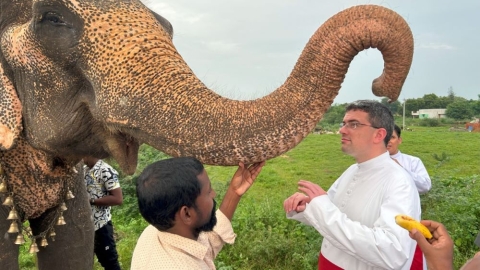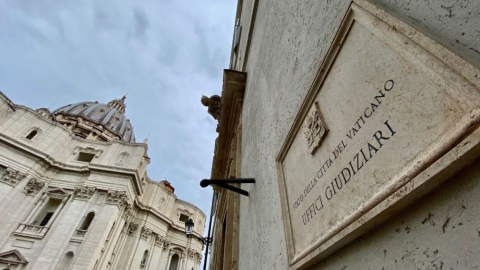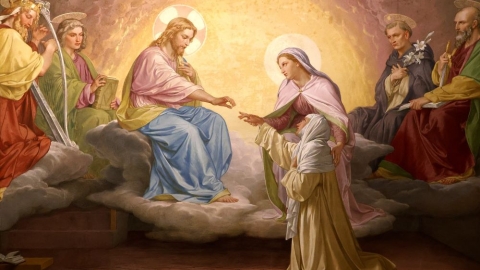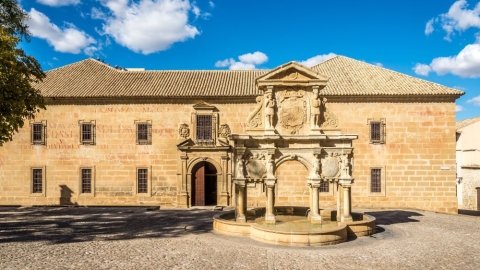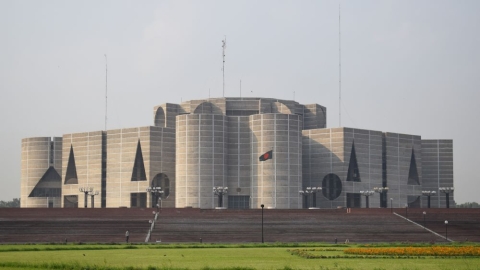Burial or Cremation?
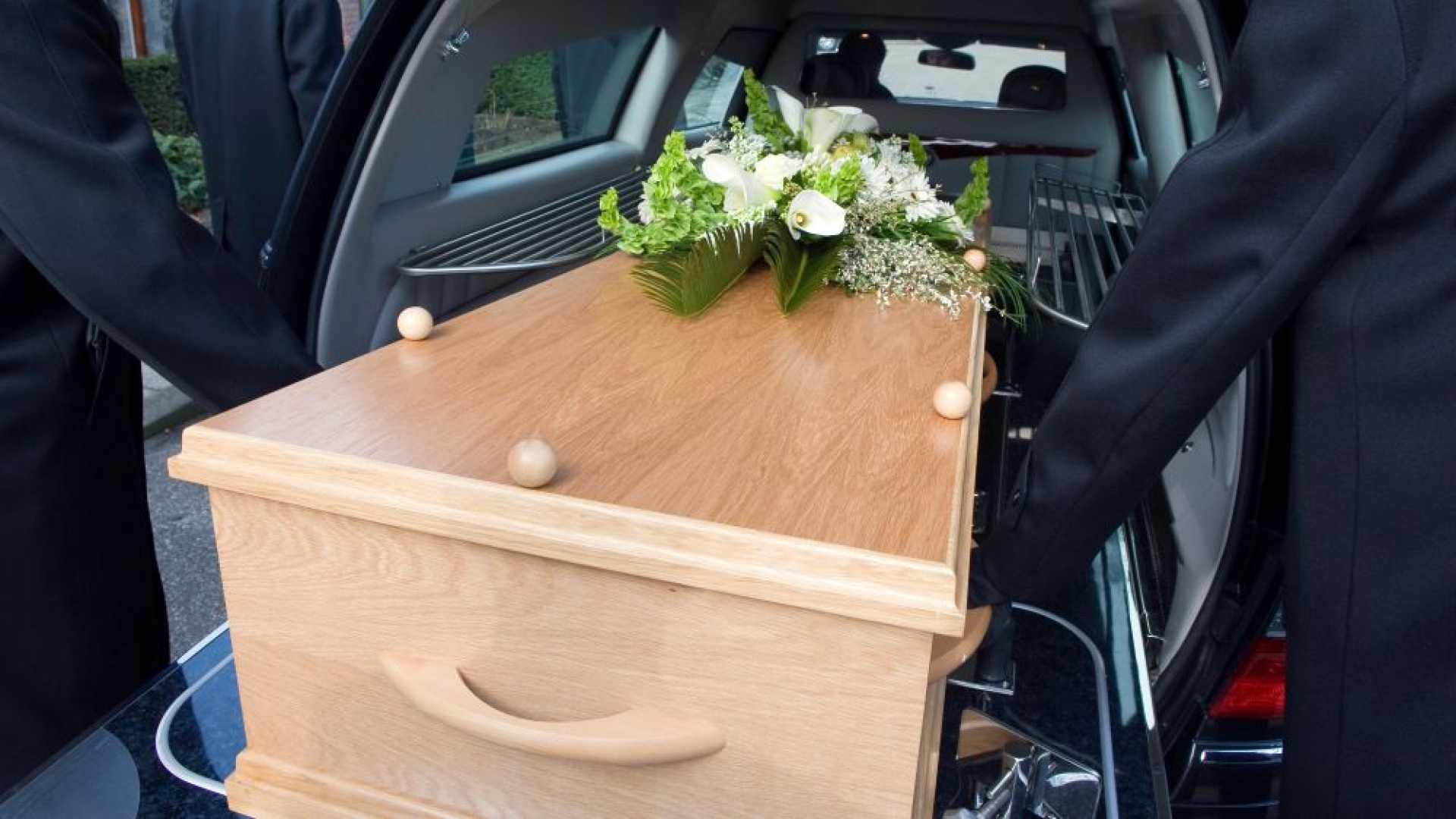
The detestable custom of burning human corpses as an ordinary funeral rite is spreading in our country as it becomes more and more de-Christianized. It is constantly promoted via propaganda inspired, coordinated and financed by Freemasonry.
Already in the last century, Archbishop Chollet quoted a Freemasonic newsletter saying,
Freemasons must use every means available to spread the practice of cremation. The Church, by forbidding bodies to be burned, affirms its rights over the living and the dead, over consciences and over bodies, and seeks to maintain in the common people the old beliefs now dissipated by the light of science about spiritual souls and the Christian life.
The Freemasonic sect makes no secret of its anti-Christian intent when it promotes the return to the pagan rite of cremation from the two-thousand-year-old practice of the Church, for it is uncontested that the Church adopted burial from the very beginning as its only manner of disposing of the remains of the dead. By its very Faith, it spread the practice of burial! By its Faith, it forbade the pagan custom of cremation! This is without doubt a formal law handed down from the early Church, in other words an apostolic precept, a rule given by the Apostles to the Church at its very beginning.
The Grandeur of Christian Burial
Let us study the attitude of our Holy Mother the Church, that our refutation may be founded on doctrine. Death in the eyes of a Christian is marked with a twofold character: a character of annihilation and a character of grandeur.
Death is a punishment for sin. With death every human vanity collapses. Memento homo quia pulvis es et in pulverum reverteris: "Remember, man, that thou art dust, and unto dust thou shalt return,” the priest pronounces at the imposition of ashes. But death does not bring about absolute destruction. Death does not kill the spiritual soul instantly based on its merits and its failings, and even the corpse is promised resurrection on the last day.
Cremation expresses annihilation indeed, but exaggerates it and falsifies it because it excludes from its symbolism any return to life, whereas burial means both catastrophe and mysterious hope. In the graveyard, the faithful Christian sleeps, rests from his labours while awaiting the awakening: Vos qui dormierunt, requiescant a laboribus, "for if man was sown in corruption, he will resurrect in incorruptibility" (1 Corinthians: 15, 32).
Burial also symbolizes the mystical union of the Christian with Christ who tasted death. It is just that we should share His tomb. Buried with Him, we will rise in our turn. In the shadow of the cross, the deceased awaits the dawn of the day of the Lord.
Burial also shows the respect inspired by human remains, not only for what they will become but for what they have been. These remains were united to a being that was loved. Through this body, through these features, a soul shone out. This corpse was once vivified by a soul that grace brought into participation in the divine nature. It is at tombstones that we pray, not at urns, containers, or the compartment numbers of a cold and macabre “columbarium.”
The Clarity of the Traditional Rules of the Church
Thus apostolic practice, as well as the inclination of our hearts and the rules of the Church, are explained and justified. We must know and instruct others in the Church's rulings on the matter:
Canon 1203, 1: “The bodies of the faithful departed must be buried; their cremation is condemned.
Canon 1203, 2: “If someone has instructed that his body should be cremated, it is illicit to carry out his will. If it is included in a contract, a will or any formal statement, it must be held as not written.”
What chastisement will fall upon he who desires cremation, who is voluntarily guilty of it? He becomes a public sinner and will be denied a Catholic funeral and burial (as per Canon 1240), and Masses said for the repose of his soul may not be said publicly.
Dear faithful, the month of November calls us to meditate on death, an event that is at once uncertain and certain: uncertain as to the time, certain as to its arrival; to meditate on our nothingness and on our greatness; on our dignity and on our responsibilities on the day of judgment.
- Fr. Philippe Nansenet
(Source : MG - FSSPX.News)
Illustration : Photo 18879078 © Buurserstraat386 | Dreamstime.com
